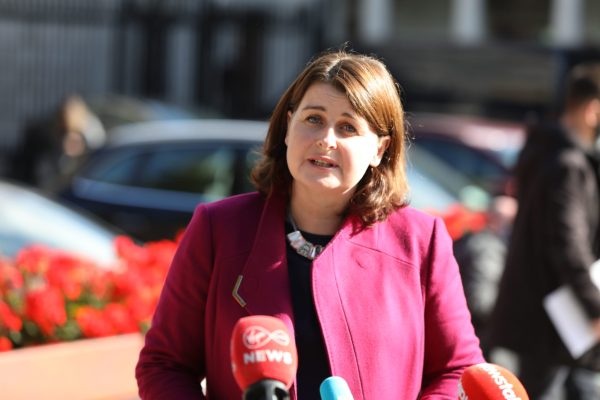Most of the heavy lifting has been left to the public and the private sector
The government’s Climate Action Plan is ambitious – as it should be – but lacks the financial firepower that would make it a success, according to Social Democrats Climate Spokesperson Jennifer Whitmore.
“I hope the government’s plan to address climate change is successful, because it is not just the government’s fate that hangs in the balance. All of our lives, and livelihoods, are contingent on success. Climate action is not a partisan political issue. We should all be invested in tackling climate change and willing to work together to ensure our best collective chance of success.
“Regrettably, the government has done little to instil confidence that their plan will work. There appears to be no additional public money, other than what has already been announced in the National Development Plan, assigned to the plan.
“Most of the heavy lifting, therefore, will be left to members of the public and the private sector – a financial burden the government puts at approximately €125 billion. While the government is upfront about the costs the public and businesses will incur, they are silent on the detail of targeted financial supports that will be necessary to help those who are unable to bear this enormous initial outlay.
“It is difficult, for instance, to see how a target of 500,000 retrofitted homes by 2030 can be achieved in the absence of a complete reform of existing schemes, which lock out those on average incomes. Heaping additional debt on people during a cost-of-living crisis is not the answer.
“It is also difficult to see how those on low or average incomes will be able to afford the 1 million electric vehicles the government say will be on the road by 2030. This target was first announced in 2019 and there is nothing new in this plan which suggests there is now a realistic prospect of this target being met.
“The report has the laudable aim of cutting car journeys by 500,000 a day, through various public transport measures. Yet, the total allocation for Connecting Ireland, a public transport scheme for rural Ireland, next year is a paltry €5.6 million. How can such a large target be achieved in the absence of supporting infrastructure and funding?
“The report’s section on agriculture, the sector which comprises more than a third of our carbon emissions, is especially underwhelming. It claims “beef production will be transformed”, but doesn’t say how, and states there will be “review of diversification options”, a vague pledge which could surely have been advanced before now. Farmers will be rightly upset that there is so little detail on how they are expected to make such monumental changes to their businesses.
“The government, if it wants this plan to be a success, will have to bring people, from every sector and segment of society, with them. It can do that through communicating the urgent need for climate action measures; ensuring the measures it announces are appropriately targeted and putting adequate supports in place for those sectors, and people, who are most exposed to climate change and least able to afford the measures that are necessary to climate-proof their futures.
“I welcome the inclusion of a statutory Just Transition Commission in the plan, having myself launched legislation earlier this year that would enable such a commission to be established, but I am concerned that this will be a toothless organisation if it is not provided with appropriate supports.
“Climate action is not just the job of government. It is something each of us much embrace in our own lives. However, the government must provide the sectoral, regulatory and overarching financial framework to enable us to do so.
“Ultimately, this plan provides a destination. But, it doesn’t provide us the means to enable us to get there.”
4 November, 2021
Ends

